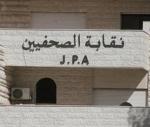You are here
Mashrou’ Leila’s concert ban draws controversy
By Dana Al Emam - Jun 15,2017 - Last updated at Jun 15,2017

The Lebanese rock band Mashrou’ Leila’s concert was banned from performing in Amman for the second consecutive year (Photo courtesy of Mashrou’ Leila Facebook page)
AMMAN — For the second consecutive year, the government’s banning of a Mashrou’ Leila’s concert in Amman has raised questions about the authorities’ conflicting and fluctuating decisions. The concert was scheduled to take place on June 27.
In a letter issued on Monday and addressed to Tourism Minister Lina Annab, Interior Minister Ghaleb Zubi announced the ban of the performance, which was organised by ALEF arts and entertainment production company, without elaborating on the reasons behind the ban.
Last year, Amman Governor Khaled Abu Zeid had cancelled the band’s performance, which was scheduled to take place on April 27 at the Roman Theatre. He then attributed the decision to the idea that “some of the band’s songs contain lyrics that do not comply with the nature of Jordanian society”.
At that stage, the Lebanese rock band had already performed three times in Jordan.
ALEF General Manager Abdullah Al Assadi said in a statement that the concert, which was supposed to take place at the Amman Exhibition Park on Airport Road, was cancelled due to the Interior Ministry revoking the security approval, after it had been granted by the ministry and Amman’s governor.
Meanwhile, Assadi said the Ministry of Tourism had supported the concert and shown “full dedication to the event”.
He added that the band was supposed to play songs from their new album “Ibn El Leil”, which Jordanian fans have not yet heard live.
“The excitement for this concert was especially high for fans in countries like Palestine and Syria, where the band is not able to reach their fans via live performances,” Assadi said.
On its official Facebook page, the band said the recent decision was reminiscent of last year’s events, when the band’s performance was authorised, then banned, then the ban was lifted.
After being invited to perform in Amman this year, and after the concert organisers obtained all the necessary licences and permits, authorities have banned the performance, Mashrou’ Leila said.
“We are terribly disheartened and sorry for our audience that this is happening again. We were extremely excited to return and play our music to our audience, friends and families who live in Jordan, and have been our foremost advocates since the band’s conception,” the band’s statement said.
Linking the decision of the ban to intolerance towards the homosexual and queer community, to which some band members belong, the band said authorities’ “inconsistency” in dealing with the band and its performances sends the message that Jordanian authorities do not intend to separate Jordan from conservatism.
“We are sorry for being forced to exclude Jordan from our tour in the Middle East, Europe and the Americas, which will still go on as planned,” the band, which is due to perform in Tunisia on June 30, added.
Assadi noted that all tickets purchased to attend the performance will be refunded.
Jordanians took to social media to share their opinions regarding the ban.
Ghassan Juma said fans of the band will keep listening to it and might attend their concerts in other countries in the region, two things that the government cannot control.
Another user claimed that the ban decision was due to the political, rather than sexual, nature of the songs’ messages, citing some song lyrics that encourage the people to oppose oppressive governments that seek to silence peoples’ criticism.
For his side, Imad Nibali said the popular debate about holding or cancelling the concert has taken up too much public attention, at the expense of more important local concerns, such as the recent incident of violence against two doctors on duty at Al Bashir Hospital.
Alaa Madi said banning the performance would require the government to ban other “offensive” parties and performances during Ramadan. However, he claimed that the government would have allowed Mashrou’ Leila’s concert if it had received high revenues from it.
On the other hand, Bushra Arabiyat considered it an act of “humiliation and disrespect” to try to get the band to perform in Jordan this year, considering it had previously been banned.













